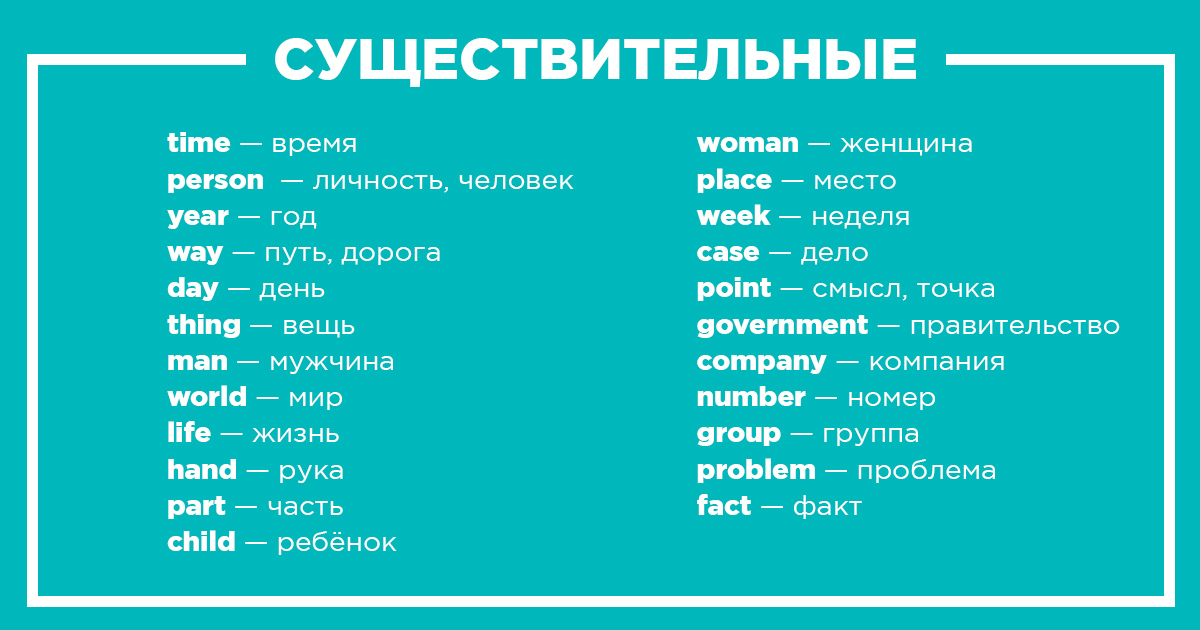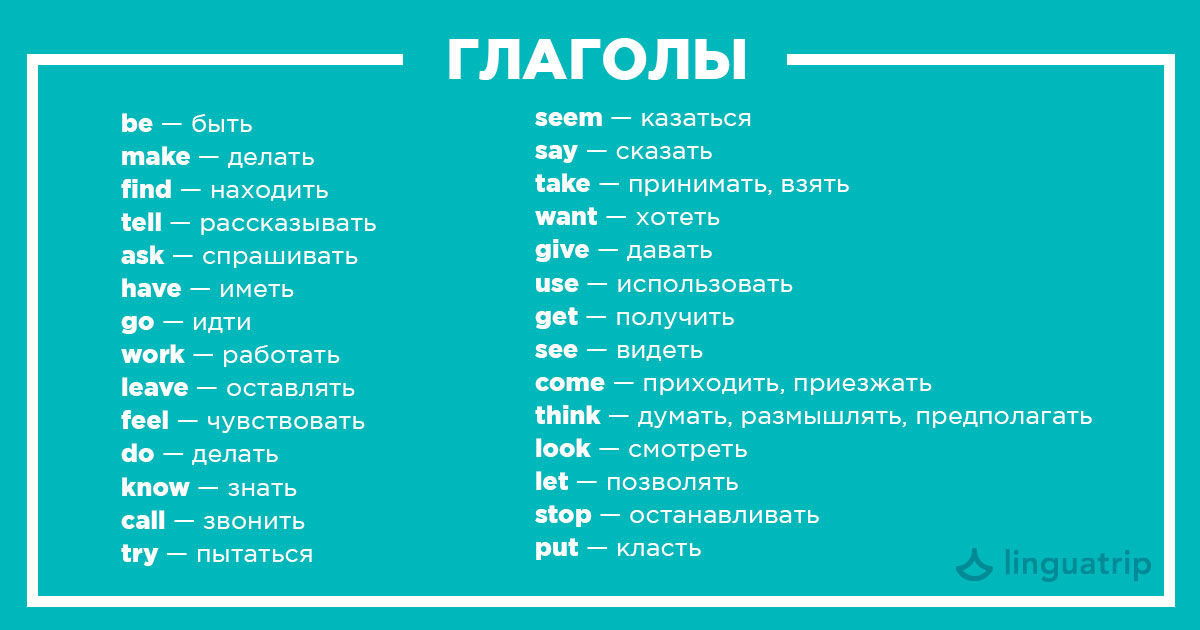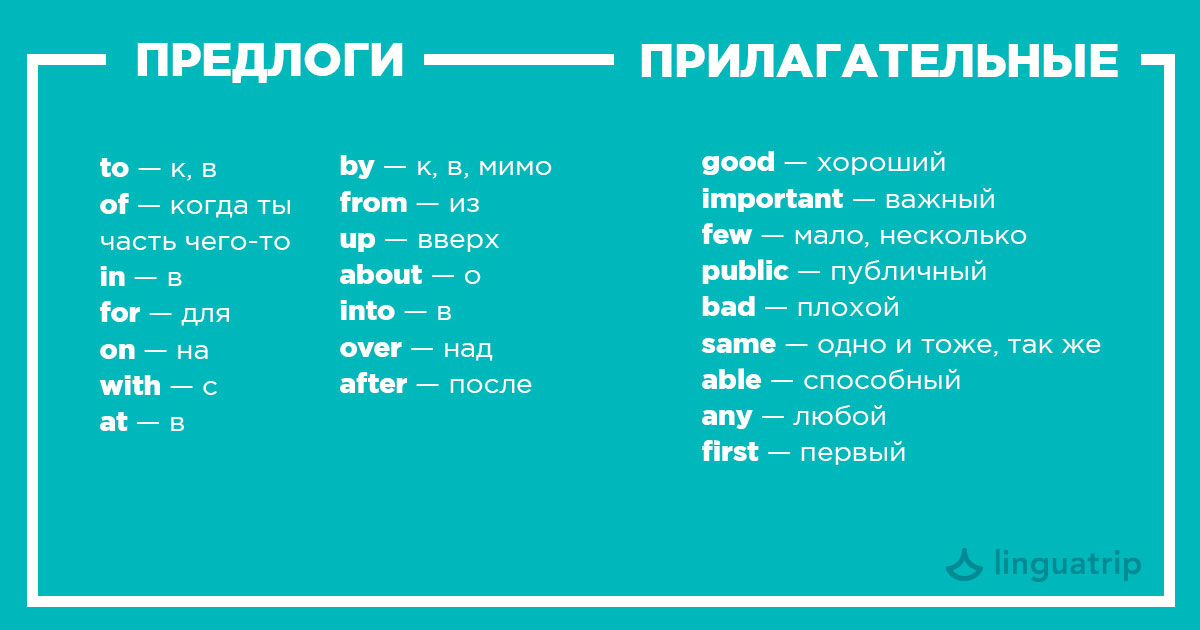My name is Marina Mogilko, I am a cofounder of the online platform LinguaTrip.com.
My team and I help people learn the language and enter a foreign university. I know that you can’t learn English in a month, but sometimes there are situations when you need to urgently tighten your tongue - you have a trip abroad or work is planned in an English-language project. And maybe there’s simply no more strength to learn the language and you want to start talking on it already. For such cases, we picked up simple steps that are available to any working person with an hour of free time per day.
All tips are designed for those who already have a minimum level of English - taught it at school or in courses. But in a month, those who are only familiar with the language will be able to speak, however, it will be more difficult for them. There will be no recommendations in the article such as “learn a language with a native speaker” or “immerse yourself in a language environment”. These are effective methods, but they are not always suitable.
So here we go! Caution: under the cat mini-dictionary for all occasions.

Step 1. Deal with the Times
There are many times in English, but four are enough for ordinary communication: Present Simple, Present Continuous, Future Simple and Past Simple. Remember how they form and how they differ from each other. This is enough to make you understand.
Present Simple - to talk about what usually happens.
I usually work from 9 till 17. - I usually work from 9 to 17.
Present Continuous - what's happening right now.
I am working now. - I'm working now.
Future Simple - what will happen in the future.
I will work tomorrow. - I will work tomorrow.
Past Simple - what happened in the past.
I worked yesterday. - I worked yesterday.
Step 2. Deal with the articles
There are no articles in Russian, so it’s hard for us to remember them. However, it is precisely the mistakes in using a / the that show that a person does not know English well. But sorting through the articles is not so difficult - in essence, these are adjectives that answer the question “Which one?”
We set the indefinite article a / an when we speak for the first time about an object or about any.
I had a banana for lunch. - For lunch, I ate a banana.
Which banana? It was just one banana.
If the word begins with a consonant, put the article a, if on a vowel - an.
I had an orange for lunch. “I ate an orange for lunch.”
We set the definite article when we have already said something about this subject or have in mind a certain one.
The orange was delicious. - The orange was delicious.
What kind of orange? The same orange that I ate for lunch.
This is a basic rule. You can learn about additional nuances from the video.
Step 3. Learn the 100 most frequently used words.
We compiled a selection of 100 words that are most often used. They are enough for simple conversations.




Step 4. Learn Phrases for Etiquette
It is often difficult to speak when you are afraid to look impolite. Sometimes a stupor occurs if you do not know what to say: hi or hello. Or how to ask, how to say goodbye. Here's a quick tip on etiquette expressions.
Greeting
In English, the greeting consists of two parts: in the first we greet each other, and in the second we are interested in how we are doing, even if the person is not familiar to us.
Hello! Hi! - Hi!
Good morning! - Good morning!
Good afternoon / evening! - Good afternoon / evening!
Nice to meet you! - Glad to meet you / Glad to meet you!
What's up? - Hi! How are you?
Two in one - say hello and ask.
How is it going? = How are you? = How are you doing? - How are you?
Long time no see! - Long time no see!
Reply to the greeting:
Good And you? - Good. How do you?
Fine! Thank you! - Well! Thanks!
Nothing! / Nothing much! - Nothing special!
Parting
Bye! - Till!
Good bye! - Goodbye!
See you! - See you later!
You look great! - You look beautiful!
Have a good vacation! - Have a nice holiday!
Have a good day / night! - Have a nice day / evening!
Good luck! - Good luck!
See you later! - See you later!
Take care! - Take care of yourself!
Talking on the phone
Abroad, it is not customary to immediately call a person to the phone, especially when calling an organization. First you need to introduce yourself and voice the reason for the call, then invite an employee.
Hello! My name is ... I'm calling regarding ... Could I talk to ... - Hello! My name is ... I'm calling on a question ... I can talk to ...
Apologies
I'm sorry ... - Sorry ...
Excuse me. - Sorry.
When we want to attract attention.
I'm sorry for the mix up. “I apologize for the confusion.”
Sorry to bother you. - Sorry to interrupt. I'm sorry for disturbing you.
I spoke too soon. - I hurried.
As an apology when I said something wrong.
Kind request
The phrase “Please, give me ...” is not polite enough, so it’s better to ask for something in the form of a question or offer of your service.
Could you ...? - Could you…?
Can I have ...? - Can I take…?
I would like ... - I would like to ...
I would prefer ... - I would prefer ...
And add everywhere please - please.
Polite refusal
I'm afraid I can't. “I'm afraid I can't.”
I don't think I can. “I don't think I can.”
I'm sorry, but I can't. - Sorry, but I can’t.
I'd love to, but I can't. - I would love to, but I can’t.
Disagreement with the opinion of the interlocutor
I am sorry, but I disagree. - Sorry, but I do not agree.
I am afraid I cannot agree with you. “I'm afraid I can't agree with you.”
I don't think so. - I do not think so.
I am not sure about that. “I'm not sure about that.”
I see what you mean, but ... - I see what you mean, but ...
Thanks
Thank you / Thanks! - Thanks!
Thank you a lot / Thanks a lot! - Thank you so much!
Thank you so much / Thank you very much! - Thanks a lot!
It's very kind of you! / It's very nice of you! - It's very kind of you!
Thank you anyway! “Thanks anyway!”
When someone has not reached the desired result or plan, and he needs to be thanked for his efforts.
Reply to Thanks
You're welcome! - You are welcome!
Not at all / That's all right! - It's my pleasure!
No problem! - No problem!
Don’t mention it! - Do not mention it!
It was a real pleasure for me to do it! - I enjoyed it.
It was the least I could do! “This is the least I could do.”
Step 5. Learn Communication Phrases
Now a selection of English phrases to help keep the conversation going. Speech with them will be livelier, and communication will become easier. Expressions just need to be learned.
| Expression | Transfer | Note |
| A little birdie told me. | The bird whispered. | Rumor has passed. |
| Can I take a message? | Can I give him something? | In a telephone conversation. |
| Can't complain. | Not complaining. | Everything is really cool. |
| Cheer up! | Cheer up! Do not be upset! | Smile! Be happy! |
| Come on, you can do it. | Come on, you can. | We say when you need to cheer up. |
| Couldn't care less. | I am not interested. | Literally: it excites me the least. |
| Did I get you right? | I understood you correctly? | |
| Don't take it to heart. | Do not take to heart. | |
| Fingers crossed! | Cross your fingers! | In the hope of a good outcome. |
| Get back to me on this. | Come back to me about this later. | For example, when new information appears. |
| Get real. | Be realistic. | |
| Give me a break. | Give me a break. | When someone insists on asking or demanding something. |
| Go ahead. | Go on / Go! | |
| Good to know. | Good to know. | We answer when they report useful information. |
| Have you heard the good news? | Have you heard the good news? | |
| How do you know? | How do you know? | Where did you get the news? |
| How's work going? | How's your work? | |
| I can't imagine. | It's difficult to imagine. | When you can’t believe in something. |
| I can't keep up. | I do not have time. | When you do not have time with some business. |
| I can make time for yoga / meeting / something. | I can free up time on a schedule for yoga / meeting / anything.
| |
| I didn't catch the last word. | I did not make out the last word. | When they didn’t understand what they said. |
| It doesn't matter. | It does not matter. | |
| I don't know off the top of my head. | It’s hard to say. | When a person needs more information. |
| I don't want to hear that. | I don’t want to hear about it. | When someone makes excuses. |
| I'd better be off. | I better go. | |
| I'd be happy to help. | I will be happy to help. | |
| I have a bad / good feeling about this. | I have a bad / good feeling about this. | |
| I have a lot on my plate. | I have a lot to do. | |
| It is no big deal. | A couple of nonsense. | When you need to reassure someone and say that nothing bad happened. |
| It's not worth it! | It's not worth it! | |
| I'll be with you in a minute. | I will be (with you) in a minute. | |
| I'll text you! | I will write to you! | Send something in a message. |
| I'm losing it. | I'm going crazy right now. | I'm going crazy. |
| Keep me posted. | Keep me informed. | |
| Keep up the good work! | Keep up the good work! | We say when we are satisfied with how things are going / work. |
| Let's get down to business. | Let's get down to business. | |
| Let me know ... | Let me know… | |
| Let me see how I can move some things around. | Let me see if I can move something in the schedule. | |
| Lucky you! | Lucky you! Here is the lucky one! | Congrats! |
| Not one bit. | Not a bit. | Not at all. |
| No worries. | No problem. | |
| Put (something) on hold. | Pause (something), pause. | |
| Put yourself in my shoes. | Put yourself in my place. | |
| Pull yourself together. | Get together! | When we encourage the interlocutor. |
| Right this way, please. | Here please. | When they point the way. For example, we came to a restaurant, and the hostess leads us to the reserved table with this phrase. |
| Stay in touch. | Be in touch. | |
| That explains it. | It explains everything. | |
| That's a good one. | Great joke. | The answer to the joke is possible with sarcastic overtones. |
| There is no room for doubt. | I am one hundred percent sure. | I am absolutely sure. |
| Think fast! | Think faster. | When a super urgent problem that needs to be solved is on the verge. |
| Things happen. | Anything happens, it happens. | |
| This is driving me nuts! | It drives me crazy! | |
| You can't be serious! | Are you kidding! | When they talk about something that is hard to believe. |
| You get what you pay for. | What I bought, I got it. | |
| You've got to be kidding me! | You must be joking! | |
| What have you been up to? | What did you do? What did you do? | What have you been doing? |
| Where were we? | Where are we staying? | |
| Who cares? | Who cares? | What difference does it all matter. |
| Who knows? | Well, who knows? | A rhetorical question. |
| Will do. | I will do it. | The short answer is when asked to do something. |
Step 6. Use Stickers
Another simple way to replenish your vocabulary is to stick stickers with English names on objects: furniture, dishes, household utensils, and more. This can be done at home, in the car and at the workplace, if the boss permits. As a rule, a week is enough to remember all the words.
Step 7. Create your own language framework
It is necessary to make your own dictionary with the necessary vocabulary. For example, a language is needed for a trip. Then we select words and phrases by themes: airport, customs, hotel, cafe, shop, museum. Or the language is required for work, then we write out special terms and learn them. It will be safety net - language framework. Usually it also has about 100 words.
Step 8. Comment on social networks
Social networks are an easy way to practice. Follow English-speaking bloggers on Twitter or Instagram to read posts and leave comments. This will boost Writing and Speaking at the same time, because social networks usually simplify grammar and write the same way they say. However, you can encounter slang, so they prepared a short cheat sheet from popular words and phrases.
Buzzwords
By the skin of my thees - barely barely
Couch potato is a lazy person who does nothing.
For real? - Seriously?
Hangry - annoyed and angry because he did not eat
Piece of cake - easy task, a couple of trivia
Ragequit - exit the game in a fit of rage or annoyance. Accompanied by the throwing of objects: keyboard or joystick
Receipts - evidence, proofs in social networks, on the Internet
Salty - offended and annoyed
Stalker - a person who pursues: writes or constantly calls
Wine o'clock / beer o'clock - time to go to a bar and drink wine or beer
Abbreviations
Totes (short for totally) - absolutely
Adorbs (short for adorable) - cute
BRB = be right back - coming back soon
BTW = by the way - by the way, by the way
DOB = date of birth - date of birth
ETA = estimated time of arrival - estimated time of arrival
IMHO = in my humble opinion - in my humble opinion (IMHO)
LMK = let me know - let me know
MIA = missing in action - when someone sells, does not answer calls and messages
RSVP (French - Répondez s'il vous plait, English - Please reply) - please give an answer
TBA = to be announced - will be announced later
TBC = to be confirmed - will be confirmed later
Verbs
To bail - abruptly leave without saying goodbye
To feel blue - to be upset
To hang out - hang, spend time
To have a blast - have a good time, enjoy something
Left on read - read a message but do not reply
To screw up - fill up
Step 9. Watch the video with English subtitles
Sometimes it’s hard to perceive the language by ear, but this will help the video with English subtitles. When we hear and read at the same time, a link is formed in the brain between how the word looks and is heard. Next time, the brain will isolate a familiar word in English speech and compare its meaning with what it remembers.
You can watch anything: TV shows, blogs, lessons. For British English, we recommend the series Call the Midwife (Call the Midwife) and Lovesick (Remember All Connections), for American - Brooklyn 9-9 (Brooklyn 9-9) and Stranger Things (Very Strange Things).
We hope the tips will be helpful. What do you recommend for a quick start?